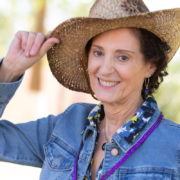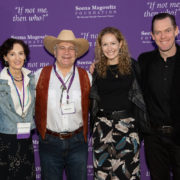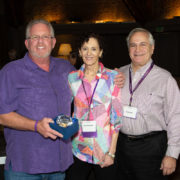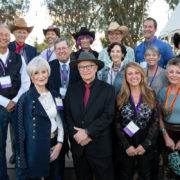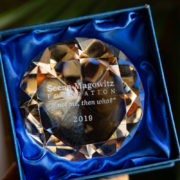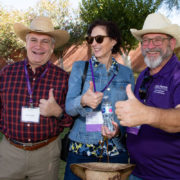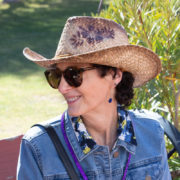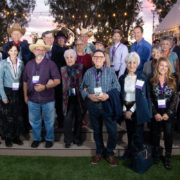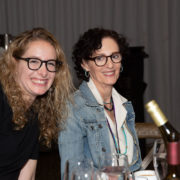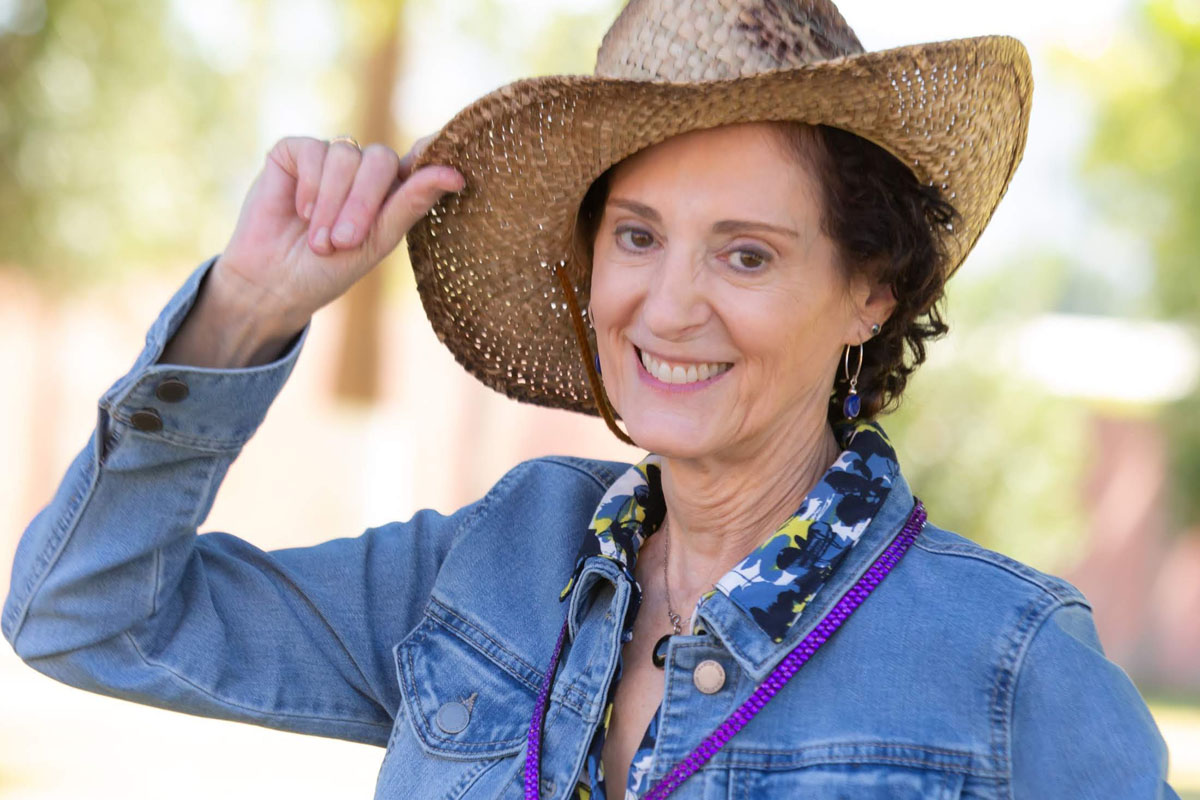
EDITOR’S NOTE
With deep sadness, Vivian Pearlman recently lost her battle with pancreatic cancer. She fought a valiant and courageous battle particularly because she was diagnosed at Stage 4. She fought the battle for 6-years. Our sincere condolences to her family and close friends. Vivian will be missed by all of us at the Foundation.BELOW WAS HER STORY
Dr. Vivian Pearlman
With Standard Treatment, She Was Given Just Months To Live
Written By Julia Brabant
November, 2019
Diagnosed: November 2017
Status: Presently No Sign of Active Cancer
When Dr. Vivian Pearlman and her husband traveled from Minnesota to Arizona to celebrate their daughter’s wedding, she did so in high spirits, looking forward to celebrating with family and friends and then spending the winter there working, hiking and otherwise enjoying one of life’s major milestones. It wasn’t until she sat down to draft thank-you notes about two weeks after the wedding that things took a turn for the worse, and she found herself facing intense abdominal pain that spread to her shoulder soon after it started.
She turned to the internet, as so many do when facing symptoms of unknown origin, and after some online research, she suspected problems with her gall bladder. She visited her doctor, who agreed that gall bladder issues were the likely cause of her pain, and had an ultrasound the next morning. Within two hours, she received a call from her physician. The ultrasound suggested a mass in the body and tail of the pancreas and another two masses in the liver. Both of her father’s brothers had pancreatic cancer, so Dr. Vivian knew that was a likely diagnosis. A CT scan that afternoon confirmed the pancreas mass and four masses in the liver and was consistent with multiple hepatic metastases, indicating Stage 4 pancreatic cancer.
While her doctor told her that only a biopsy could provide a definitive diagnosis, she did suggest that Dr. Vivian go ahead and meet with an oncologist. The following week, she visited an oncologist, and then another, who both told her that, with standard treatment, she had somewhere between four and seven months to live.
When Dr. Vivian asked about the possibility of signing on to a clinical trial, such as the “Grand Slam“, which was in its second phase and one of the most promising trials in the country at the time, her oncologist told her not to bother looking at any trials that had not yet reached Phase 3. However, a friend of a distant relative told her about her experience with Dr. Daniel Von Hoff at Arizona’s HonorHealth Research Institute years earlier, and a day later, Vivian’s son in New York found a contact who put her in touch with a research oncologist at the University of Pennsylvania. That oncologist referred her directly to the groundbreaking Grand Slam study, which Dr. Von Hoff had helped pioneer.
NIH Government Clinical Trial NCT02754726 (Sometimes Known As “Grand Slam”)
Just weeks after her first symptoms appeared, she signed on to participate in the trial. She responded remarkably well to the treatment despite the sometimes-brutal nature of its side effects. Following treatment, she began taking oral chemotherapy, which she continues to this day, nearly two years after doctors predicted she’d succumb to the disease within a matter of months.
“I’m incredibly grateful for the extra time I’ve gotten, and I’m so thankful for the doctors, nurses and entire staff at HonorHealth,” she said. “They’re all so passionate about, and committed to, their mission, and I have so appreciated the warmth and caring attention that the providers give, not just to the treatment and goal of extending life, but to maintaining the quality of life to the fullest degree possible.”
Now, with firsthand knowledge of the power of clinical trials under her belt, Dr. Vivian encourages others facing new diagnoses to do their own research and recognize that there are, in fact, options out there.
“With many other cancers, there are lots of resources and supports available, but that’s just not the case with pancreatic cancer,” she said. “The first line of treatment should be to find an appropriate clinical trial.”
Because Dr. Vivian did so, she’s been able to make the most of the days, weeks, months, and years since her doctors gave her a four-to-seven-month prognosis. A PhD and a licensed psychologist in Minnesota who previously worked in hospital and outpatient settings, Dr. Vivian now works from home as a consultant for the state of Minnesota. She also celebrated another child’s marriage and saw the birth of her first grandchild; and while she’s full of gratitude for the “extra time” she’s had, she knows not to take a single moment of it for granted.

